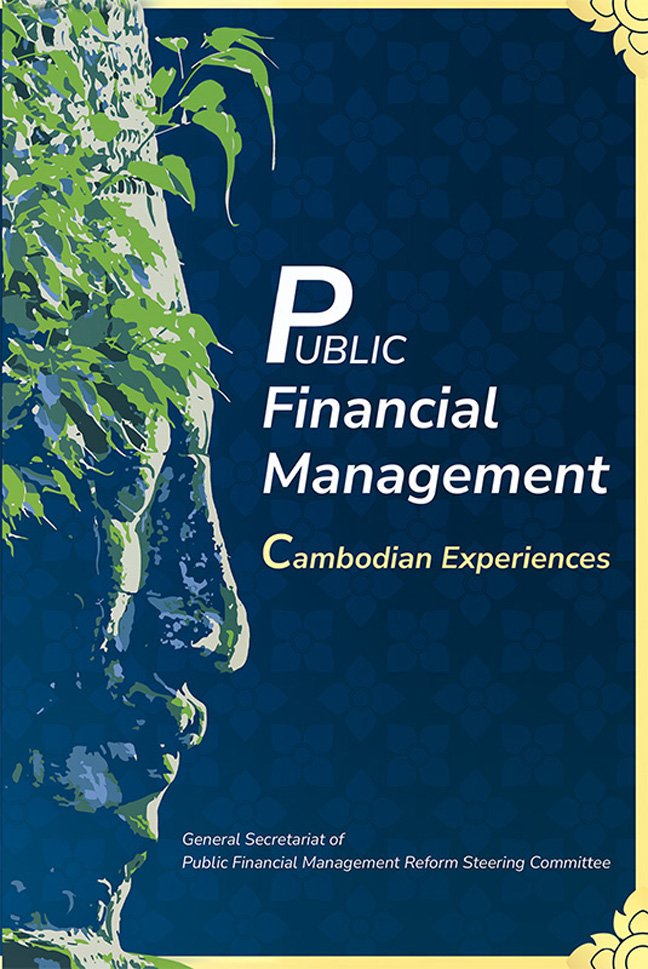Book contents
- Frontmatter
- Contents
- List of Figures
- List of Tables
- Foreword
- Preface
- Acknowledgements
- Notes on the Author, Editors and Contributors
- Abbreviations
- Chapter 1 Introduction
- Chapter 2 Overview of Cambodian Economy and PFM Reform Program
- Chapter 3 Strategic Planning and Budgeting
- Chapter 4 Components of PFM in Cambodia
- Chapter 5 PFM System Assessment Tools
- Chapter 6 Case Study
- Chapter 7 PFM Experiences of Selected ASEAN and OECD Countries
- Bibliography
- Glossary
- Index
Chapter 1 - Introduction
Published online by Cambridge University Press: 26 March 2024
- Frontmatter
- Contents
- List of Figures
- List of Tables
- Foreword
- Preface
- Acknowledgements
- Notes on the Author, Editors and Contributors
- Abbreviations
- Chapter 1 Introduction
- Chapter 2 Overview of Cambodian Economy and PFM Reform Program
- Chapter 3 Strategic Planning and Budgeting
- Chapter 4 Components of PFM in Cambodia
- Chapter 5 PFM System Assessment Tools
- Chapter 6 Case Study
- Chapter 7 PFM Experiences of Selected ASEAN and OECD Countries
- Bibliography
- Glossary
- Index
Summary
1.1 BACKGROUND
The Royal Government of Cambodia (RGC) has achieved substantial progress in public financial management (PFM) since the inception of the reform program in 2004. PFM is the backbone of RGC reforms, but its objectives and benefits are not widely known to the public. While many components of PFM are present throughout the government, the overall system and its benefits are not widely understood or recognized. This is, in part, due to the holistic and long-term successes of PFM reform in Cambodia having never been described in one place.
This book offers a remedy to this problem by providing an overview of PFM and Cambodia’s reform experiences. This examination includes a recent history of PFM reform, a delineation of its components in the RGC, a discussion of how PFM affects planning and budgeting, case studies within the RGC, and a comparison of reform experiences of selected OECD and ASEAN countries. Finally, the book draws key lessons from reform experiences (successes and failures) in both developed and developing countries that may be useful in the Cambodian context.
1.2 WHAT IS PFM?
PFM can be explained with a simple analogy as the following. In everyday life, each household is faced with questions about earned income and spending. These questions may include:
• What do we need with regard to food, clothes, education and entertainment?
• Where does the money come from to pay for it?
• Do we have enough money to cover all the expenses we need? Should we borrow money from somewhere? Are we able to pay back our borrowed loan?
• Is everyone in the family adequately taken care of?
These questions are familiar to every household and if we do not properly address them can lead to dire consequences for the family.
A government is like a household, but larger. Every citizen is a family member of that household. The process by which the government manages its resources to meet the needs of its citizens is called Public Financial Management (PFM). In a family, parents work and get paid, and this may constitute the whole income for the household. The government gets its revenue from tax and non-tax sources domestically and from external sources, such as loans and grants from bilateral and multilateral aid agencies. The government wants to use its revenues efficiently, equitably and in a manner that provides stability and sustainability of the operation of the government.
- Type
- Chapter
- Information
- Public Financial ManagementCambodian Experiences, pp. 1 - 7Publisher: ISEAS–Yusof Ishak InstitutePrint publication year: 2023



